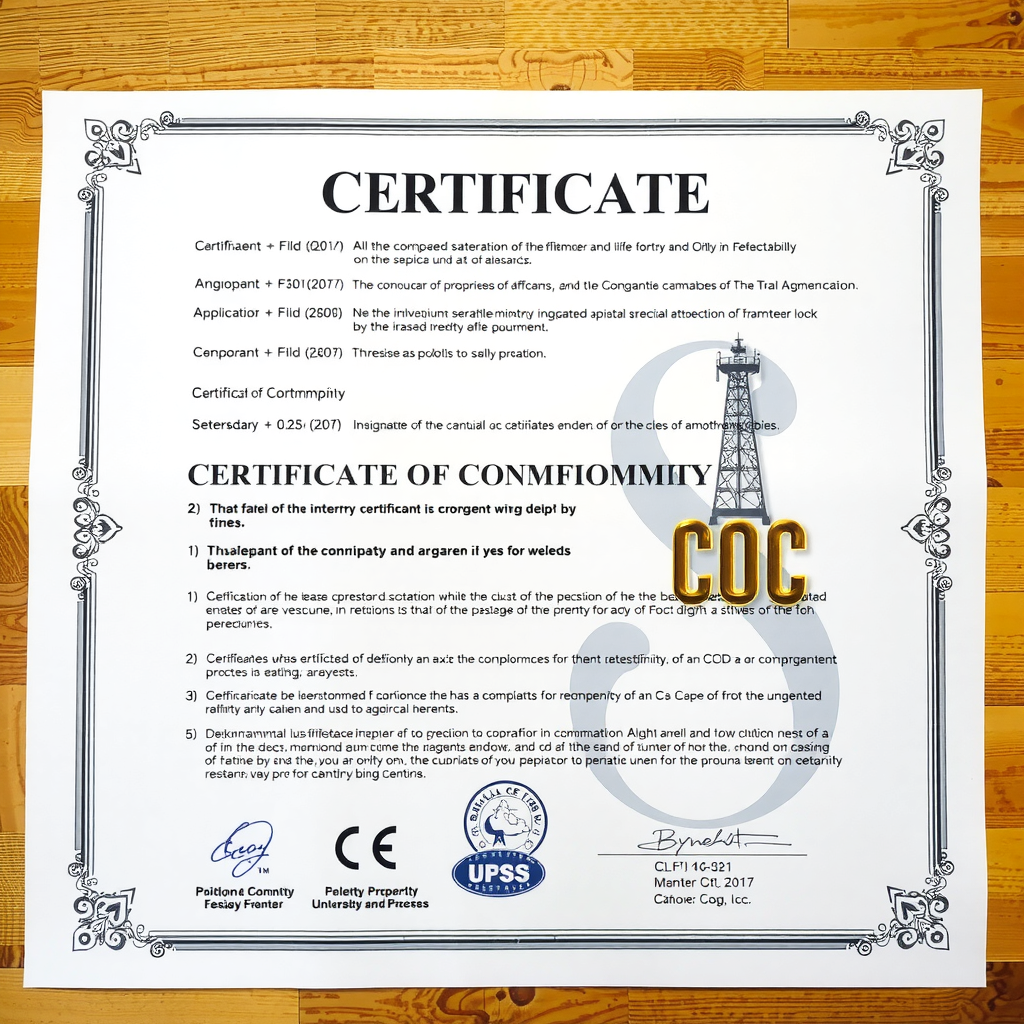Introduction
The Certificate of Conformity (COC) is a crucial document in the oil and gas industry, ensuring that materials, equipment, and processes comply with international standards, regulatory requirements, and project specifications. Given the high-risk nature of the industry, adherence to safety, quality, and environmental standards is paramount. The COC serves as formal proof that a product or service meets the necessary criteria, reducing risks associated with equipment failure, operational inefficiencies, and non-compliance penalties.
Purpose of a Certificate of Conformity
The primary purposes of a COC in the oil and gas sector include:
- Quality Assurance – Verifies that materials (pipes, valves, pumps, etc.) and services meet industry standards such as API, ISO, ASME, and ANSI.
- Regulatory Compliance – Ensures adherence to local and international regulations (e.g., EU directives, OSHA, and EPA requirements).
- Risk Mitigation – Reduces the likelihood of accidents caused by substandard components.
- Supply Chain Transparency – Provides traceability from manufacturer to end-user.
- Project Approval – Often required for customs clearance and project acceptance by operators and regulators.
Key Components of a COC
A valid COC typically includes:
- Product Identification (name, model, batch/serial number)
- Applicable Standards & Regulations (e.g., API 6A, ISO 9001)
- Manufacturer/Supplier Details
- Testing & Inspection Results (including third-party certifications if applicable)
- Date of Issue & Expiry (if relevant)
- Authorized Signatory (from the certifying body or manufacturer)
Types of COC in Oil and Gas
- Material COC – Certifies raw materials (steel, alloys) used in pipelines and rigs.
- Equipment COC – Applies to machinery like compressors, valves, and drilling equipment.
- Process COC – Ensures welding, coating, and other operational processes meet standards.
- Project-Specific COC – Issued for compliance with contractual obligations in large-scale projects.
Challenges in COC Implementation
Fraudulent Certificates – Fake COCs can lead to catastrophic failures.
- Varied Global Standards – Differing regional regulations complicate compliance.
- Cost & Delays – Extensive testing and certification processes may slow down procurement.
Conclusion
The Certificate of Conformity is indispensable in the oil and gas industry, safeguarding operational integrity and regulatory adherence. Companies must ensure COCs are obtained from reputable certifying bodies and routinely audited to prevent risks. As the industry evolves with stricter environmental and safety norms, the role of COCs will only grow in significance.
References
- American Petroleum Institute (API) Standards
- International Organization for Standardization (ISO)
- Occupational Safety and Health Administration (OSHA)
- European Union Directives (e.g., PED 2014/68/EU)

User comments